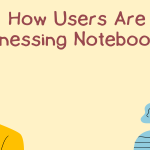Quick Take:
Concerns about AI’s potential to replace human creativity and employment are widespread, sparking debates about identity, fulfillment, and economic resilience in an increasingly automated world.
Key Themes from the Discussion:
1. Identity and Fulfillment in Work:
Many argue that the satisfaction derived from creative or technical work lies in the struggle and effort involved. AI’s ability to automate these processes threatens this sense of accomplishment and purpose.
2. Economic Challenges:
There’s significant anxiety over AI-induced unemployment, especially in white-collar sectors. Some participants suggest universal basic income (UBI) or regulatory frameworks as solutions, though skepticism remains about their feasibility.
3. Creativity vs. Utility:
For some, human creativity transcends AI’s capabilities, with emotional depth and personal vision providing lasting value. Others worry that if AI achieves the same results more efficiently, traditional creative processes may become obsolete.
4. Adaptation and Opportunity:
Optimists argue that AI is an empowering tool that eliminates repetitive tasks, allowing creators to focus on innovation. Mastering AI could become a career advantage, enabling individuals to thrive in a transformed landscape.
5. Generational and Philosophical Divide:
Younger and more tech-savvy individuals often see AI as an opportunity for collaboration, while others view its rapid evolution as a fundamental threat to humanity’s role in society and the economy.
Final Thoughts:
The debate reflects a broader societal crossroads: will AI enhance human potential, or will it erode the foundations of identity and economic stability? This ongoing conversation highlights the importance of balancing innovation with thoughtful adaptation.


